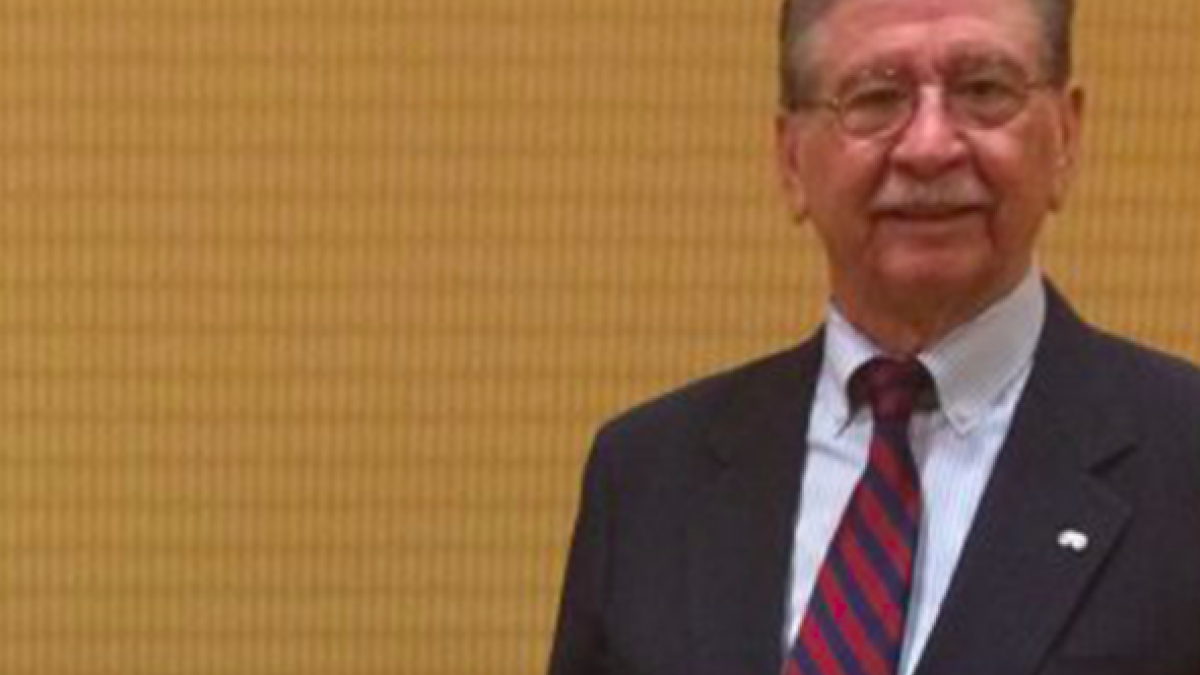Regents Professor recognized with applied anthropology award, reflects on 50 years of research

Arizona State University Regents Professor Carlos Vélez-Ibáñez has been awarded the 2021 Solon T. Kimball Award for Public and Applied Anthropology.
Carlos Vélez-Ibáñez, Regents Professor and founding director emeritus in Arizona State University's School of Transborder Studies, has been honored with the 2021 Solon T. Kimball Award for Public and Applied Anthropology, recognizing his many contributions to the field.
According to the American Anthropological Association, the Kimball Award honors exemplary anthropologists for outstanding recent achievements that have contributed to the development of anthropology as an applied science and that have impacted public policy.
“Dr. Velez-Ibáñez’s contribution to anthropology over the arc of his career is exemplary,” the American Anthropological Association said in a written announcement. “Through his application of anthropological methods and theory, he has given voice and presence to individuals, families, and communities who have been ignored and marginalized, particularly his work with individuals entangled in the political economy of the U.S.-Mexico border and Latinos across the United States. Dr. Velez-Ibáñez’s work has impacted the fields of cultural ecology, migration and transborder studies, and more.”
In recent years, Vélez-Ibáñez received the Saber es Poder Prize from the Institute for Mexicans Abroad and the Mexican American Studies Department of the University of Arizona; was awarded the Franz Boas Award by the American Anthropology Association; and was internationally recognized by an induction into the Mexican Academy of Sciences. His book “Hegemonies of Language and their Discontents” was awarded honorable mention by the American Association of Latinas/os Anthropologists of the American Anthropology Association, and his newest work, “Reflections of a Transborder Anthropologist from Netzahualcóyotl to Aztlán,” was selected for the distinguished author award of the American Association of Hispanic Higher Education. In spite of a career filled with accolades, Vélez-Ibáñez said that receiving the Kimball Award holds a special significance.
“The American Anthropology Association had not really until about, I would say 20 years ago, taken up a focus of applied anthropology and public policy, although there were many members very early on who were involved in applied anthropology and also the public consequences of their work,” Vélez-Ibáñez said. “I'm very appreciative that I've joined others who had long served these capacities. I think many of us learned long ago that it's just not enough to have your work cited or placed in the libraries.”
Having authored 12 books in English and Spanish, as well as many articles and chapters, Vélez-Ibáñez’s work has certainly been cited and placed in libraries, but the larger impact of his work is the ability to give often ignored populations the opportunity to have their histories recognized and documented.
“For an awful lot of my colleagues and myself, our work has to mean something other than to ourselves. Many times it is an individual effort, but its consequence should be an affirmative one for the populations with whom you're working with. … Your writing should address issues that change the narratives about populations. For me, that is really one part of the application of knowledge – that you're shifting and changing the narratives about people.”
The key to applied anthropology is to understand the populations being studied, their major issues and apply that knowledge in some beneficial and measurable way, he said.
“Delving into historical records can many times be problematic because they are in fact, the documents of usually the colonizers, the privileged ones,” he said. “But what makes anthropology and especially applied anthropology different in relationship to creating new narratives is our capacity and the ability to really live and listen to people. We don't rely exclusively on a survey instrument and a narrowed numerical notational system in order to tell the tale, we actually live with, are a part of, and given permission to co-live their experience. In doing so your work becomes grounded in the reality of experience and not filtered only by an instrument.”
In his most recent book, “Reflections of a Transborder Anthropologist from Netzahualcóyotl to Aztlán,” Vélez-Ibáñez writes about his 50 years of research, including mistakes he’s made, contributions to the field and recognition of the debts he owes to his training, conversations and dialogues.
“I was really helped by colleagues – some present, some past – who gave me feedback on my work. This is why I say, you really don't do this work by yourself. You have to rely on the opinions and critiques and commentary of your colleagues, otherwise you make too many mistakes,” he said. “Because your work emerges from experience, you have to be very wary of your own issues that you bring to that work. … Every single word represents a position of the persons who are doing that work. That doesn't mean that you purposely do this, but it's always there. We are human. We are not automatons.”
More University news

ASU on the cusp of becoming a $1B research university
Once a fledgling research school, Arizona State University soon will hit $1 billion in annual research funding, placing the…
ASU tops $900 million in research expenditures
For the past decade, Arizona State University has been climbing the ranks as one of fastest-growing research universities in the…

ASU names 3 Regents Professors for 2025
Three Arizona State University professors are being honored with the highest faculty award possible — Regents Professor.The three…